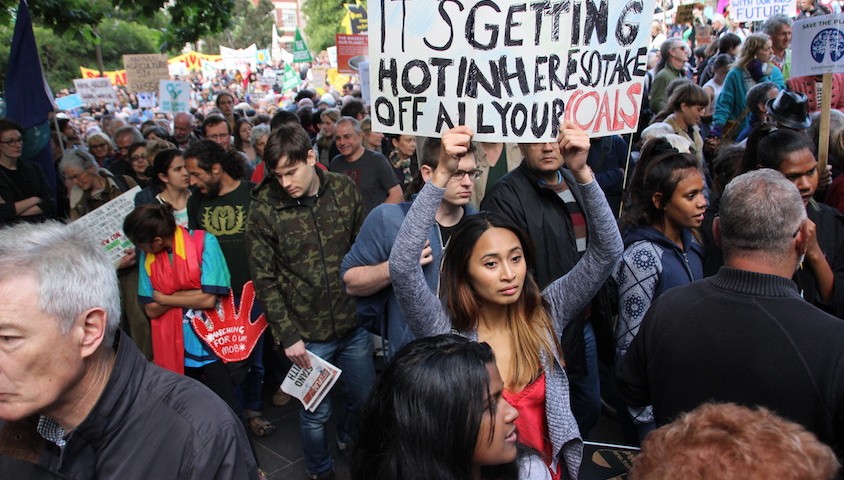From the Franklin River to the Great Barrier Reef, environment groups have played a vital role in protecting Australia’s special places. They’ve done this through protest, campaigns and advocacy, as well as legal action to ensure governments comply with environment laws.
Yet governments, with new measures ranging from anti-protest laws to funding cuts, are increasingly seeking to damage the ability of environment groups to speak out. Bad enough in isolation, these attacks form part of an unmistakable, broader trend of governments eroding many of the vital foundations our democracy.
Last week, I was joined in Canberra by leaders from across Australian civil society to launch our Safeguarding Democracy Report. Leaders who spoke out in support of issues raised in the report included representatives from the nation’s peak community agency, peak Indigenous body, faith-based agencies, the media, unions, philanthropy, international development and the environment movement.
They shared a common concern that governments in Australia are increasingly undermining many of the vital components of our democracy such as a free press, the right to peaceful protest, the ability of community organisations to speak out and the checks and balances provided by courts and other institutions.
Why are governments doing this? To avoid scrutiny, reduce transparency and limit accountability so as to expand their own power and advance vested business interests.
In the environment sector, this trend is exemplified in three ways.
First, governments are using funding levers to make it harder for environment organisations to speak out about the issues they care about. An explicit example was the defunding of the network of Environment Defenders Offices across the country following lobbying by the Minerals Council. But the Australian Government is also targeting organisations who don’t rely on government funding, launching an inquiry that threatens the ability of environmental advocacy organisations to receive tax deductible donations from supporters – which are often critical to their financial sustainability.
Second, governments are pursuing excessive and unnecessary anti-protest laws that prioritise commercial interests (particularly forestry and mining operations) over democratic rights to assemble and peacefully protest. In Tasmania, new laws criminalise legitimate protest activity with broad and vague new offences including “hindering” access to business premises or “obstructing” business operations, with serious financial penalties in some circumstances of up to $10,000 and four years imprisonment. In Western Australia, proposed laws contain extremely broad new offences of “physically preventing a lawful activity” and “possessing a thing for the purpose of preventing a lawful activity” with proposed penalties of up to two years in prison and fines of up to $24,000.
Third, the Australian Government is seeking to suppress the ability of environment groups to scrutinize government conduct in the courts. In Parliament it is doing this by trying to pass laws that make it harder for groups to bring court proceedings to ensure government complies with environment laws. In the media it is doing this by vilifying groups that challenge it in court. After the Mackay Conservation Group successfully challenged the approval of the Carmichael coal mine, senior Ministers and the former Prime Minister accused environment groups of “lawfare”, “vigilante litigation” and “legal sabotage” of the coal industry and “all large developments”.
Our Safeguarding Democracy report documents these attacks in the environment sector and positions them within the broader trend of governments undermining advocacy, protest rights and the role of the courts and other institutions. It shows that attempts to silence conservation groups who challenge the fossil fuel industry and the unprecedented attacks on the Australian Human Rights Commission and its President, are part of the same disturbing trend.
While environment, counter-terrorism and asylum seeker and refugee policy areas are bearing the brunt of these attacks, the cumulative effect is corroding our democracy.
Our report outlines 38 recommendations that are aimed, not just at stopping the damage, but actually reversing it and strengthening the foundations of our democracy.
With an election later this year, we’re calling on our political leaders commit to implementing the recommendations. The health of our democracy relies on it.
Hugh de Kretser is the Executive Director of the Human Rights Law Centre. Contact him via Twitter: @hughdekretser.
Copies of the Safeguarding Democracy Report are available here.


